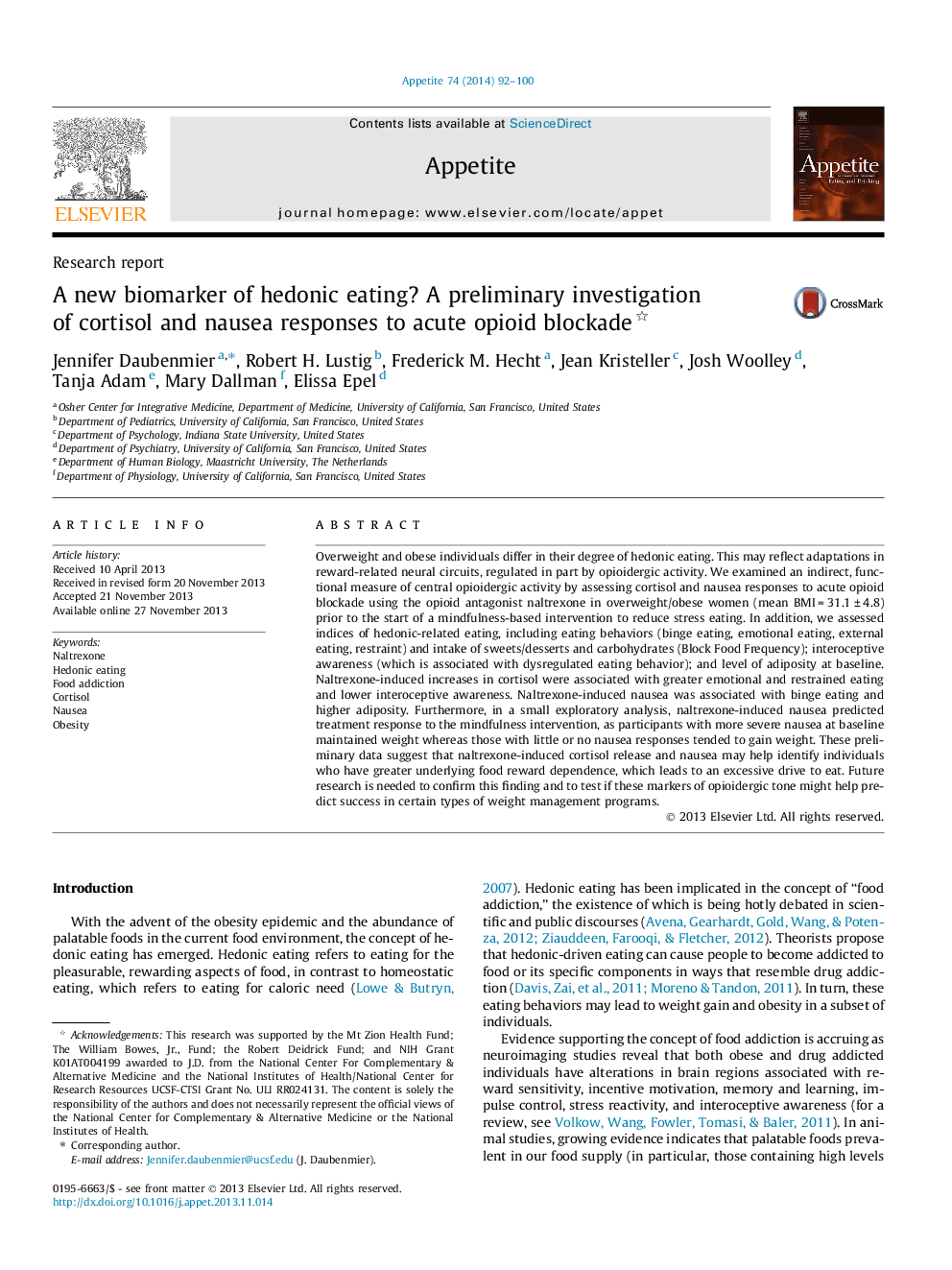| کد مقاله | کد نشریه | سال انتشار | مقاله انگلیسی | نسخه تمام متن |
|---|---|---|---|---|
| 939609 | 1475406 | 2014 | 9 صفحه PDF | دانلود رایگان |
• Cortisol and nausea responses to acute opioid blockade were examined.
• Responses were related to emotional, binge, and restrained eating, and adiposity.
• Nausea predicted weight maintenance in a mindfulness intervention for overeating.
• Cortisol and nausea responses may identify people with food reward dependence.
Overweight and obese individuals differ in their degree of hedonic eating. This may reflect adaptations in reward-related neural circuits, regulated in part by opioidergic activity. We examined an indirect, functional measure of central opioidergic activity by assessing cortisol and nausea responses to acute opioid blockade using the opioid antagonist naltrexone in overweight/obese women (mean BMI = 31.1 ± 4.8) prior to the start of a mindfulness-based intervention to reduce stress eating. In addition, we assessed indices of hedonic-related eating, including eating behaviors (binge eating, emotional eating, external eating, restraint) and intake of sweets/desserts and carbohydrates (Block Food Frequency); interoceptive awareness (which is associated with dysregulated eating behavior); and level of adiposity at baseline. Naltrexone-induced increases in cortisol were associated with greater emotional and restrained eating and lower interoceptive awareness. Naltrexone-induced nausea was associated with binge eating and higher adiposity. Furthermore, in a small exploratory analysis, naltrexone-induced nausea predicted treatment response to the mindfulness intervention, as participants with more severe nausea at baseline maintained weight whereas those with little or no nausea responses tended to gain weight. These preliminary data suggest that naltrexone-induced cortisol release and nausea may help identify individuals who have greater underlying food reward dependence, which leads to an excessive drive to eat. Future research is needed to confirm this finding and to test if these markers of opioidergic tone might help predict success in certain types of weight management programs.
Journal: Appetite - Volume 74, 1 March 2014, Pages 92–100
